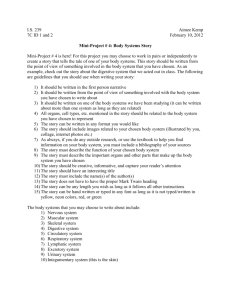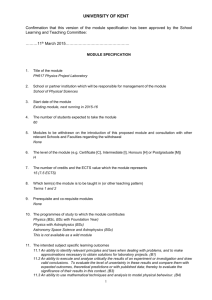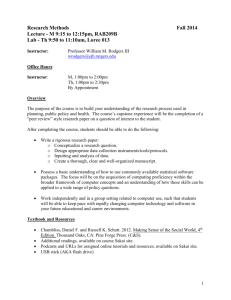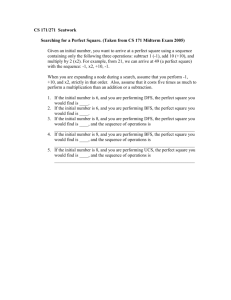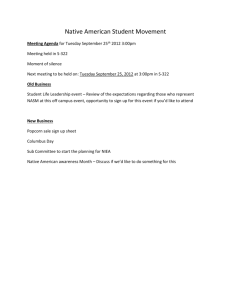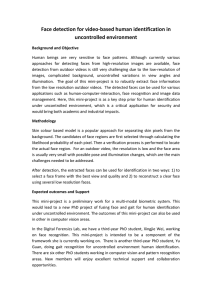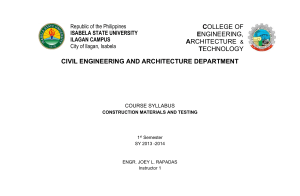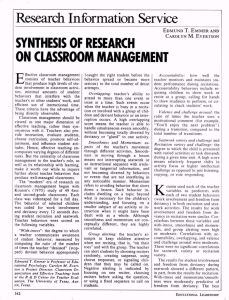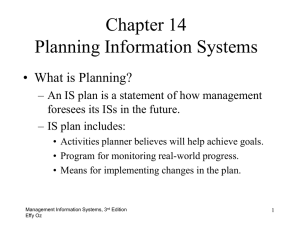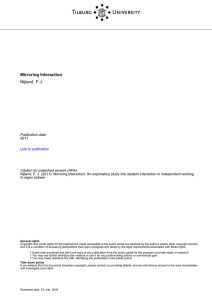College of Micronesia-FSM
advertisement
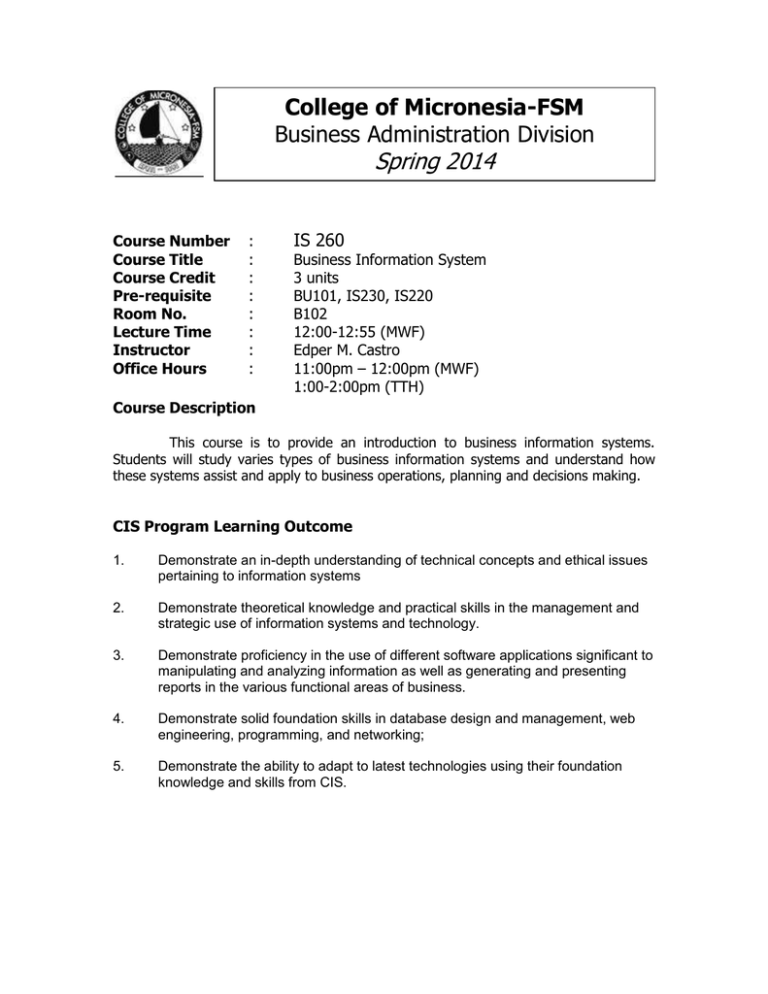
College of Micronesia-FSM Business Administration Division Spring 2014 Course Number Course Title Course Credit Pre-requisite Room No. Lecture Time Instructor Office Hours : : : : : : : : IS 260 Business Information System 3 units BU101, IS230, IS220 B102 12:00-12:55 (MWF) Edper M. Castro 11:00pm – 12:00pm (MWF) 1:00-2:00pm (TTH) Course Description This course is to provide an introduction to business information systems. Students will study varies types of business information systems and understand how these systems assist and apply to business operations, planning and decisions making. CIS Program Learning Outcome 1. Demonstrate an in-depth understanding of technical concepts and ethical issues pertaining to information systems 2. Demonstrate theoretical knowledge and practical skills in the management and strategic use of information systems and technology. 3. Demonstrate proficiency in the use of different software applications significant to manipulating and analyzing information as well as generating and presenting reports in the various functional areas of business. 4. Demonstrate solid foundation skills in database design and management, web engineering, programming, and networking; 5. Demonstrate the ability to adapt to latest technologies using their foundation knowledge and skills from CIS. Course Learning Outcome Upon successful completion of this course, students will be able to : 1. Terminology. The student will be able to explain the meaning of terms used to describe common techniques and concepts in business information systems. 2. Skill. The student will successfully use a microcomputer database management system and a Web page editor. 3. Advanced Information Systems Concepts. The student will be able to describe the ways in which computers are and will be used in business and management. These concepts include telecommunications, electronic commerce, data warehousing and mining, artificial intelligence, and future directions of computerbased information systems. 4. Systems Development. The student will be involved in a small-scale Web site development project and experience team working. 5. Behavioral and Organizational Issues. The student will be able to identify and suggest appropriate responses to managerial and organizational issues stemming from development, implementation, and use of computer-based information systems. 6. International Issues. The student will recognize the reality of implementing international information systems, including economic and cultural differences. 7. Social and Ethical Issues. The student will understand the major social and ethical issues involved in the development and use of information technology. The student will be able to argue against or in favor of controversial uses of information technologies. Attendance Policy Those who incur more than 6 absences on this class shall automatically be dropped out from the official class roster with a grade of ‘F’. The total missed classes include unexcused and excused absences, such as sickness, funerals (except for close relatives like parents or siblings), and other circumstances. Moreover, those who will come in 10 minutes or more after the start of the class shall be considered as late. And those who come in 30 minutes or more on this class after the start of the class shall be considered as absent but will be allowed to join the class. However, if there is an activity the same student will not be graded for such activity even if he/she performs the activity during that time. Academic Honesty To ensure the integrity of the educational process and the institution, the College encourages honesty, and therefore does not condone cheating, plagiarism, or any related form of academic dishonesty which prevents an instructor from being able to assess accurately the performance of a student in any facet of learning. House Rules 1. Turn off or put in silent mode your cell phone when in class. 2. Do not use or surf the Internet while there is an ongoing lecture or activity/exercise. However, if there is no activity yet, or you completed your activity earlier and there is no ongoing lecture you are allowed to use the Internet. 3. No any form of liquid for drinking (e.g. soda, juice, water) shall be brought inside the Lab. 4. No smoking or chewing betel nut while on the lab. 5. If you need assistance from the teacher, just simply raise your hand and the teacher will be your side to attend to your need(s) once he/she is free to do so. 6. If you find the lecture too fast, kindly just raise your hand and inform the teacher to slow down or to repeat something. The teacher will not take that as something offensive or disrespectful. However, be sure that you are not doing something else that is against the rules stated above (e.g. surfing the Internet while the teacher is on lecture) and at the same time asking for your teacher to repeat it. Note : Those who repeatedly violate rules 2,3 & 4 will be forewarned first and after 3 violations or more, the SSP head and the Chairperson will be given notice after a private discussion with the teacher in charge. Methods of Instruction 1. 2. 3. 4. Lecture using PowerPoint slides E-Portfolio or Activities Report(s) Project Textbook Oz, Effy (2009). Management Information System, Sixth edition. United States, Boston MA (Course Technology). Latest edition Grading System Grade Distribution Distribution Activity/Reporting Project Points 35 20 Attendance Quizzes Midterm Exam Final Exam 5 10 15 15 Grade Table Points 90-100 80-89 70-79 60-69 < 60 Grade A B C D F Week 1 1-3 4-6 7 8 8-10 11-13 14-16 17 Topics Course Orientation Business Information Systems : An Overview Business Functions and Supply Chain Databases and Data Warehouses Databases and Data Warehouses Web Enabled Enterprise Decision Support and Business Intelligence Reference Syllabus Chapter 1 Assessment Seatwork 1 and 2, Quiz 1 Chapter 3 Mini-Project 1, Seatwork 3 Chapter 7 Chapter 7 Midterm Exam Mini-Project 2, Seatwork 4 Chapter 8 Chapter 10 Mini-Project 3 Project Final Exam
